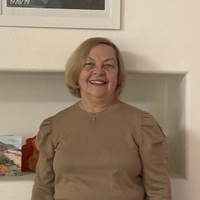Heart Valve Clinical Trials: Insights, Advances & Questions with Drs. Kapadia
Written By: Adam Pick, Patient Advocate & Author
Medical Experts: Samir Kapadia, MD, Chairman of Cardiology, Cleveland Clinic
Published: September 6, 2022
There are several misconceptions about how and why clinical trials are used to advance medical treatments for heart valve disorders including aortic stenosis and mitral regurgitation. As a result, patients often wonder, “Why should I participate in a clinical trial?”, “What is being studied?”, “Are clinical trials safe?”, and “Will I be a guinea pig?”.
To answer these important questions, we interviewed Dr. Samir Kapadia, Chairman of Cardiology at Cleveland Clinic at Cleveland Clinic. Here is the transcript of that interview:
Dr. Kapadia: Hello, everybody. Welcome to our podcast today. My name is Samir Kapadia. I’m the chairman of cardiology at Cleveland Clinic. What we are planning to do today for the patients, to try to explain to them why do we do clinical research and what are the best ways that they can participate and what are the reasons why they should consider to come to a place where there are a lot of new clinical trials. One of the ideas – maybe I ask you the first question to say that what are the kind of things that we are trying to investigate in clinical trials? Is it something that is very experimental or has already been tested such that we are providing more options to the patients?
That’s a great question. Clinical trials range all through the sorts of treatment options that we have for cardiac disease. Some are about new medications, some are about new devices, and some are about new procedures. Clinical trials range as far as how new the investigational device or procedure is. In most cases, however, these are things that have already been studied extensively They may have had multiple even human trials leading up to that point, and these are large trials usually for the FDA to approve the device for widespread use. Most of the time, these aren’t really experimental in the way that people might think of this is something that’s never been done before, but it’s something that’s been proven but we want to use it in a large population to make sure it works for everybody and has very good results.
I want to stress one part, that at Cleveland Clinic seems we are very involved in the new devices and new procedures and new surgeries. Many of these things that are brought to Cleveland Clinic, we have some expert that already knows the device, who already has been working on the device for a long time. They actually understand that what are the best ways to utilize the device. This really helps. This decreases the risk of the procedure, provides new alternatives to the patients that usually don’t have these alternatives elsewhere, and this also increases the safety of the procedure because many of the things that we test are to make the procedures even safer. It is a good idea in my mind, at least. If I have family member, I always tell them that please participate in the trial. If people doing the trial are actually involved in the development of the trial – and most of the trial that we do by definition, we only do it if we have a leadership role or we are involved in the trial to begin with.
Sometimes, patients wonder whether they should participate in a clinical trial. They ask what are your motivations for offering me a clinical trial. I always tell people that when we offer a clinical trial, it’s because we think that the treatment in the trial is really the best thing for the patient. Sometimes the trials are designed so you don’t know which – you may get the established treatment or the new treatment. That’s just part of a trial. When we offer a clinical trial to a patient, it’s because we think the new therapy is something that can really benefit them.
One question that a lot of patients ask us is to say listen, if I participate in the trial, there’s a 50% of getting the treatment that you are testing and 50% not. Why should I – what if I don’t get the right treatment? What I tell them is that if you don’t participate in the trial, then there’s 100% chance you won’t get the treatment. At least this is the way to get a 50% treatment chance, and very importantly, we follow the other 50% very closely so there is always a crossover. There is always an opportunity to give the best treatment to the people as soon as we learn that the treatment we provided is better than the older treatment, standard treatment. This is a common question, I’m sure, that your people ask you, too. There’s a 50/50 chance, and how do I make sure I’m in the right group? There is the purpose of the study.
There’s no way to guarantee which arm of a trial you might be in. Otherwise, it wouldn’t work. I think what you say is right, that if we’re excited about a new therapy, often in the beginning, that’s the only way to get it is through a clinical trial until it’s approved for widespread use. Usually the other arm is also one way you’re going to get very close monitoring. Your doctors are going to take excellent care of you, and in most cases now the control arm or the non-investigational arm of a trial is a well-established therapy as well.
A good example, we both participate in aortic valve treatment. You may be in a trial of a transcatheter device versus a surgical device. Those have mostly been done now, but we make sure that either option is a good fit for the patient. We would never subject somebody to a risky situation or not treat a medical problem just for the sake of a trial.
Another example is the mitral valve where Dr. Gillinov and others are using surgical expertise. As everybody knows that surgery was our – the best surgery possible for the mitral valve repair and the same for the clip arm is where we are doing the clips. Again, we have been doing the clips from 2004 or ’05. Both are very established treatments. We are trying to compare them, and we are able to do this for the best patient and the best anatomical situation. We are not trying to find out okay, this will work or not and putting somebody at risk. If we are confident we can provide both treatments equally, then only we’ll do this.
That’s a great example of a trial where the treatment, the mitral clip, is not really investigational at all anymore, and the trial is actually to expand the indication to move patients. Now the question – another question people are asking is how would they know that they are candidate for any trials in Cleveland Clinic. What are the ways that they can figure it out that they are interested – if they’re interested in clinical trials?
From a patient perspective, often patients are very well-informed, and they’ve looked these things up and they find them on the internet. The manufacturers of the devices and even the medical centers like ours have information available online about clinical trials. People will come and ask us, am I a candidate for this or that? We always are open to all of those things, but usually your doctors will approach you and let you know that you’re a candidate, and that’s the main way. Our doctors are leaders in these trials and involved in the design and execution of the trials. They will come to you as a patient and say they think you may benefit from a trial procedure or device or medicine and offer that to you.
As you said, we do also have on our website the different centers, and all the centers also list the trials that we are doing. If somebody’s interested in trying to find out that for the aortic valve, or mitral valve, or cardiomyopathy what are the trials that Cleveland Clinic is doing. You can go to our website or centers and try to identify what trials we are doing.
We love when people come with those questions because it just makes it a better conversation about all the options available. We want our patients to be as informed as they can be.
Now the last question is what is the cost of the trial and if people are interested, would they have to pay. Most commonly, most of the trials cover the cost. We make sure the trials cover the cost. Patients should not have additional costs for the trial. Many times, even the trial pay for the travel and the extra visits if they need it or any extra investigations that need to be done, the trial will cover it.
Generally speaking, Cleveland Clinic or even the manufacturers of devices or medications aren’t trying to make any money off of a clinical trial. These are about expanding our knowledge and providing better care for our patients.
Thanks Dr. Kapadia & Cleveland Clinic!
On behalf of our entire patient community, many thanks to Dr. Kapadia for sharing his clinical experience and research with our community! Also, many thanks to Cleveland Clinic for taking such great care of heart valve patients.
Keep on tickin!
Adam




